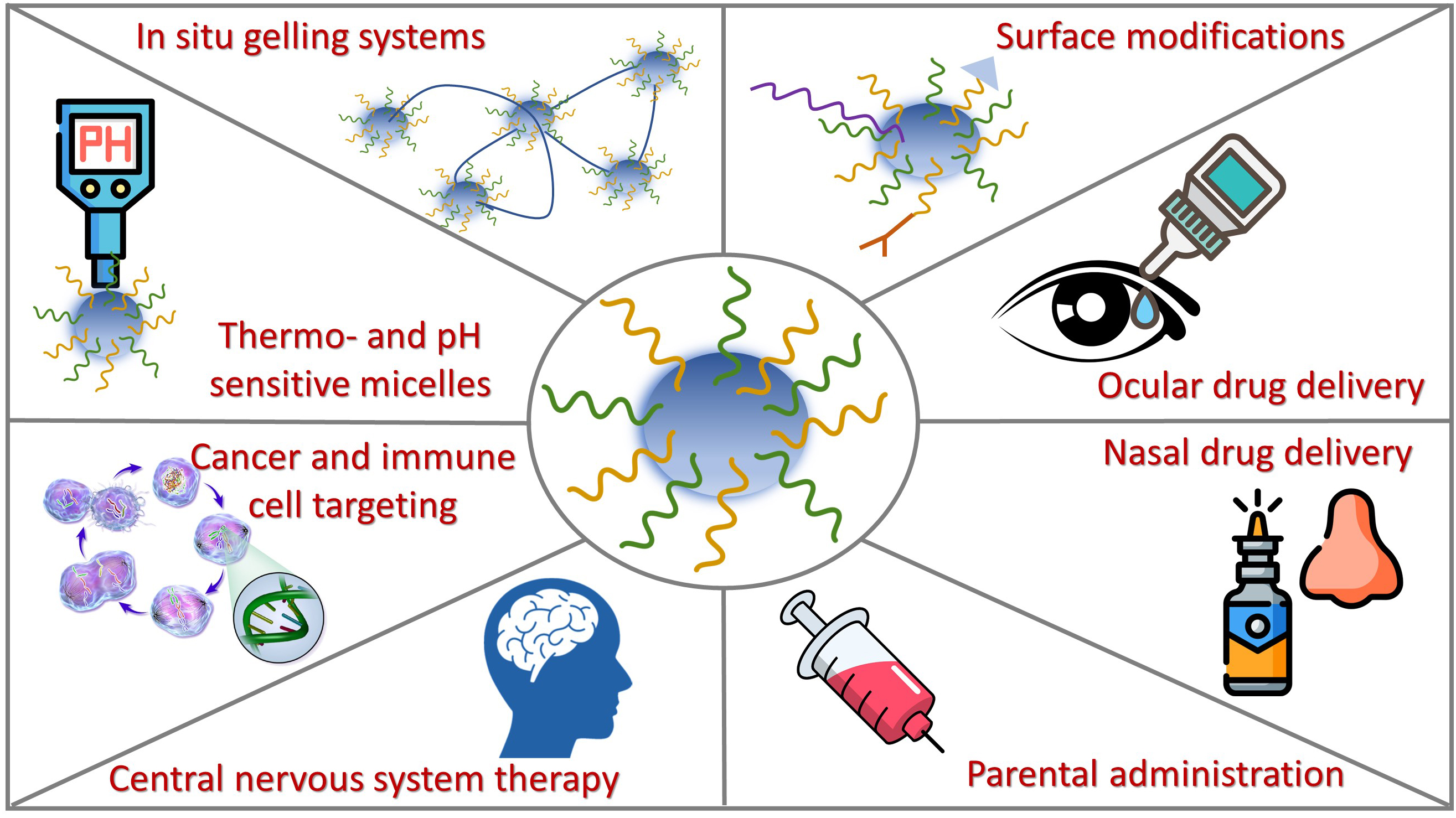SZTE Nanomedicine Research Group
Principal investigator: Prof. Dr. Ildikó Csóka
Polymer micelles for enhanced bioavailability and targeted drug delivery

Polymeric micelles are among the polymer-based nano drug delivery systems, which are popular in the development of nanotherapeutics. This is due to their low toxicity, biocompatibility, and last but not least, their solubility- and absorption-enhancing effects.
Diseases of the central nervous system are characterized by a higher prevalence year by year and the symptomatic treatments of which are unfortunately not always resolved. Polymeric micelles provide an excellent solution for the delivery of drugs with poor bioavailability through the so-called nose-to-brain pathway and to achieve an elevated therapeutic effect. Due to their high tissue distribution capacity and stability in the body, they may also be promising candidates in the targeted therapy of cancer and immune system diseases.
The human body has a number of administration routes through which we can achieve excellent therapeutic efficacy while improving the patient’s therapeutic experience, thereby the adherence. However, these have a number of obstacles, such as: rapid elimination mechanisms, hepatic metabolizing effects and the protective role of the blood-brain-barrier. Nevertheless, an optimized polymeric micelle-based nanotherapeutic system can provide adequate drug bioavailability even with these barriers.
The current focus of our research deals with the auspicious nose-to-brain delivery pathway aiming to treat neurodegenerative disease-associated neuroinflammatory symptoms in the central nervous system and with the formulation of ocular in situ gelling systems to improve the drug release and absorption in the case of eye infections.

